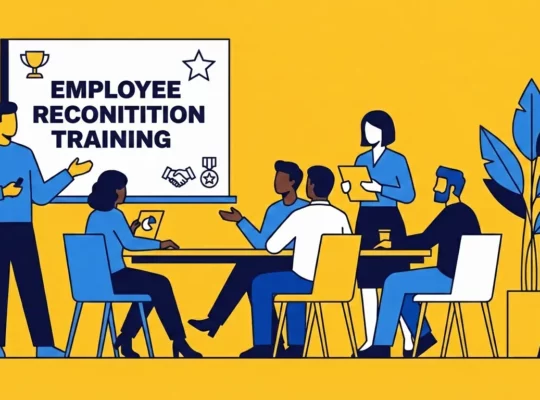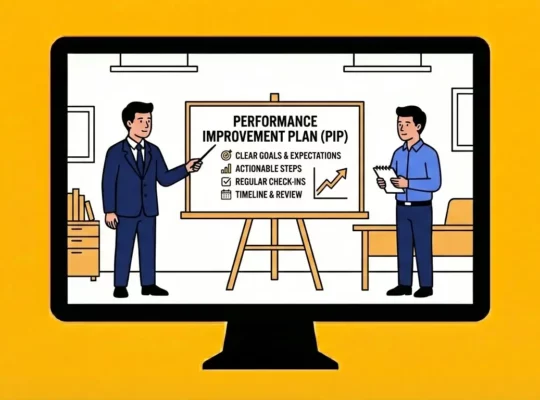Takeaways
- Lean HR enhances operational efficiency by eliminating waste and streamlining processes.
- It improves employee satisfaction through efficient workflows and responsive HR practices.
- Lean HR aligns HR functions with organizational goals, driving measurable business success.
- Implementation involves training, process audits, and the use of Lean tools like HR analytics.
- Lean HR creates a culture of collaboration, innovation, and continuous improvement.
The workplace landscape is evolving, and so is how businesses manage their most important resource—people. Enter Lean HR, a game-changing approach that applies Lean principles to human resources, focusing on streamlining operations, cutting inefficiencies, and enhancing employee experiences. Rooted in methodologies like Six Sigma and Toyota’s production system, Lean HR has transitioned from manufacturing to HR, fundamentally changing how organizations approach workforce management.
This article will explain Lean HR, why it matters, and how to implement it successfully in your workplace.
Table of Contents
What is Lean HR?
Definition and Core Principles
At its core, Lean HR involves the application of Lean management principles to HR processes. The goal is to create value for employees and the organization while eliminating waste and inefficiencies. The approach is built on five fundamental principles:
- Defining Value: Understanding what stakeholders (employees and leadership) find valuable in HR services.
- Eliminating Waste: Reducing redundancies, streamlining workflows, and improving resource allocation.
- Continuous Improvement: Embedding a culture of ongoing optimization and iterative enhancements.
- Creating Flow: Designing HR operations to ensure smooth, uninterrupted processes.
- Pull-Based Systems: Delivering HR services on demand, rather than preemptively.
Lean HR aims to align human resources with strategic goals, ensuring every action adds measurable value.
Origins of Lean HR
The principles of Lean HR trace back to Toyota’s Production System, a revolutionary method that transformed manufacturing in the mid-20th century. Over time, Lean principles expanded into service industries, including human resources, as businesses recognized the value of streamlining workflows and minimizing inefficiencies in non-production departments.
How Lean HR Differs from Traditional HR
Traditional HR often focuses on routine tasks such as payroll, compliance, and hiring without considering their alignment with organizational strategy. In contrast, Lean HR emphasizes data-driven decisions, employee empowerment, and strategic alignment, ensuring HR actively contributes to the organization’s growth.
What Are the Benefits of Lean HR?
Operational Efficiency
Lean HR simplifies complex processes like recruitment, onboarding, and performance management. By using tools like HR workflow automation, businesses can reduce time-to-hire, improve communication, and free up resources for strategic tasks.
Enhanced Employee Experience
Employees thrive in environments with streamlined workflows and efficient support systems. Lean HR fosters employee engagement by eliminating delays and ensuring transparent communication.
Cost Savings
The waste-elimination focus of Lean HR directly translates into financial savings. Organizations identify redundancies and allocate resources more effectively, achieving a higher return on investment for HR activities.
Strategic Impact
Lean HR empowers HR to become a strategic partner in business decisions. It aligns HR practices with organizational goals, fostering agility and adaptability in an ever-changing business landscape.
Building a Culture of Continuous Improvement
Lean HR promotes a culture where every employee is encouraged to suggest improvements. This culture not only enhances collaboration but also drives innovation and long-term success.
Why Does Lean HR Matter?
The Evolving Role of HR
HR has transitioned from being a purely administrative function to a critical player in organizational transformation. Lean HR positions HR professionals as key contributors to workforce productivity and strategic decision-making.
Addressing Workforce Challenges
Modern workplaces are dealing with remote work, diverse teams, and constant technological changes. Lean HR helps organizations navigate these complexities by improving processes and focusing on talent retention strategies.
Boosting Business Outcomes
Studies show that businesses leveraging Lean HR report improved employee satisfaction and higher retention rates. By aligning HR strategies with organizational objectives, companies achieve greater workforce productivity and overall success.
How to Implement Lean HR?
Preparing for Change
Transitioning to Lean HR starts with a detailed audit of existing HR processes. Organizations should identify inefficiencies, set clear goals, and secure buy-in from leadership and employees. Training HR teams in Lean practices is a crucial first step.
Key Steps for Implementation
- Define Value: Understand what employees and stakeholders expect from HR.
- Map the Value Stream: Identify value-adding activities and eliminate inefficiencies.
- Create Flow: Simplify workflows to minimize delays and interruptions.
- Establish Pull: Design HR services to meet demand as it arises.
- Pursue Perfection: Embrace an iterative approach to continuous improvement.
Lean Tools for HR Optimization
Lean HR leverages tools like:
- Kaizen Events for small, incremental changes.
- HR analytics to make data-driven decisions.
- Visual management systems to track progress and monitor workflows.
Overcoming Challenges
Implementing Lean HR has its challenges. Resistance to change is common but can be mitigated through clear communication and showcasing tangible benefits like time savings and improved morale. Sustaining Lean HR requires regular audits and a commitment to ongoing learning.
Real-World Applications and Success Stories
Lean HR in Recruitment
Streamlining the recruitment process with Lean HR principles improves candidate experience and reduces time-to-hire. Automated systems can handle job postings, resume screenings, and interview scheduling, freeing up recruiters for strategic discussions.
Onboarding and Training
Automating onboarding activities ensures new hires are integrated seamlessly. By focusing on onboarding best practices, organizations create an environment where employees feel welcomed and equipped for success.
Performance Management and Employee Development
Lean HR simplifies performance management with clear metrics and transparent processes. Employees benefit from structured development plans that align with organizational goals.
Retention and Engagement
A focus on employee-centric HR practices enhances engagement, reduces turnover, and builds a positive workplace culture. Recognition programs and regular feedback loops further strengthen retention efforts.
FAQs
What is Lean HR?
Lean HR is the application of Lean principles to HR processes, focusing on efficiency, value creation, and continuous improvement.
How does Lean HR improve employee retention?
By streamlining workflows, eliminating frustrations, and fostering engagement, Lean HR creates an environment where employees feel valued and supported.
What tools are used in Lean HR?
Common tools include Kaizen events, HR analytics, and workflow automation systems.
Is Lean HR suitable for small businesses?
Yes, small businesses benefit from Lean HR by optimizing resource use and cutting costs, enabling them to operate more efficiently.
Can Lean HR work in hybrid workplaces?
Absolutely. Lean HR adapts to hybrid and remote work environments through digital tools and streamlined communication practices.
At Review.jobs, we help businesses embrace Lean HR principles, enabling them to thrive in competitive markets by focusing on people and processes. Make the shift today to revolutionize your HR strategy and drive long-term success.





